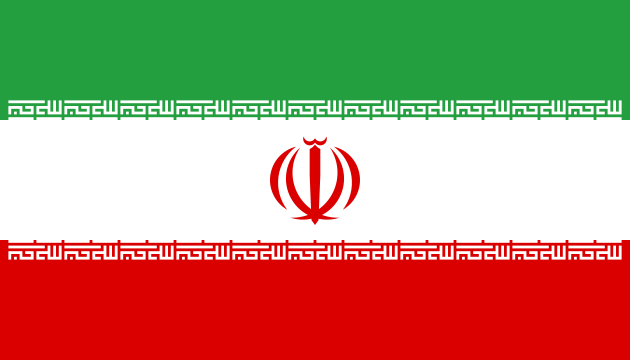6 October 2022
Uprising in Iran
Revolutionary differences.
By Neil Tidmarsh

The Bull to the Donkey one day said in jest:
“Do you think that your ears or my horns are the best?”
The Ass to this sally replied: “Since a child
My friends have described me as humble and mild,
But if I had horns ‘twould no longer be true –
And I shudder to think what would happen to you.”
These lines were written eight hundred years ago by the great Persian poet Sa’di (translated from the Farsi by John Charles Edward Bowen), but they could be read as a comment on what is happening in modern Persia right now. Sa’di’s work is so popular and well known in today’s Iran that they might even have helped to inspire the events of recent weeks.
It looks like the people of Iran have finally had enough of being treated like donkeys and asses by the bullish and bullying authorities. No longer ‘humble and mild’, they’ve taken a stand against the regime (its Ayatollahs and its twin horn-like weapons of repression, torture and even murder – the Revolutionary Guards and the Morality Police) and discovered that they do in fact have horns of their own. And it looks like the regime is indeed shuddering to think what will happen to it now.
It’s difficult to know exactly what is happening in Iran as the government has imposed an information blackout and shut down the internet. But it’s clear that the anti-hijab demonstrations protesting against the death of a young woman in police custody (Mahsa Amini had been arrested for not wearing her headscarf properly, whatever that might mean) have escalated into massive, nationwide, popular and violent protests against the country’s dictatorial government. It’s equally clear that the government is on the back foot: the hated morality police and their green and white vans have disappeared from the streets; police cars have been overturned and set on fire; security forces have retreated; the Basij – gangs of Islamic militiamen – have been fought off; a number of army and air force commanders have refused to play any part in suppressing the protests.
To be fair to the people of Iran, this isn’t the first time that they’ve shown themselves to be anything but humble and mild. They’ve taken to the streets to protest against repression, corruption, poverty and terrible water shortages many times in recent years, most seriously in 2009, 2019 and 2021, in spite of the ruthlessness with which such protests have always been suppressed. (The 2019 protests were crushed with more than 1500 deaths and 8,600 arrests and many prisoners raped, beaten and tortured.)
But this time, apparently, things are different. In 2009, the protesters demonstrating against alleged election fraud were mostly middle-class inhabitants of Tehran; in 2019, the protesters demonstrating against fuel-price rises were mostly working-class Iranians from provincial cities across the country; but this time, “all classes, socioeconomic levels and ethnicities have joined forces” according to Ramita Navai in this week’s The Sunday Times. “The regime has never been up against such widespread, broad and united dissent.” Moreover, these protesters “want something far bigger than economic and political reform. They are demanding freedom and regime change.”
What is also different is the engagement of the younger generation’s “anger, courage and resolve” in the protests; “it is these 20 and 30 year olds who are leading the charge. Born well after the revolution their parents led, they are the revolution’s chickens coming home to roost.” And it looks as if they’re launching a revolution of their own. The protests began with hundreds of thousands of young women across the country burning their hijabs and taking to the streets without them, and the fiercest clashes are now taking place between students and the security forces at Sharif University in Tehran and Isfahan University.
Interestingly, Ramita Navai (who is the author of City of Lies; Love, Sex, Death, and the Search for Truth in Tehran) says that the “anger, courage and resolve” of this younger generation have been fuelled by the sexually repressive policies of the regime, policies which are superficially about morality but in fact are about political control. “The bravery of the young has been nurtured in the bedroom, where the mullahs have been unable to police the love lives of Iranians” in spite of the office of the supreme leader issuing an edict some years ago against pre-marital or extra-marital sex, declaring it “shameful” and ordering officials to “show no mercy”. (Readers of this column may recognise this as Measure for Measure territory; see Sex and Authority, Shaw Sheet issue 220, 24.10.19).
Another striking difference about this wave of powerful protest is the regime’s faltering response. It has yet to show the single-minded ruthlessness with which it crushed previous protests. Although the security forces are using water cannon, tear gas, batons and metal pellets, there have been few reports of gunshots, and the death toll (as reported by the NGO, Iran Human Rights) is currently only (only!) 133. For the first time, the regime appears to be reluctant to provoke further protest. Knowing that the rest of the world is watching, it may even be uncharacteristically wary of international condemnation. And the theocracy is facing a leadership crisis; the supreme leader Ayatollah Khamenei is aged and unwell. There have even been conciliatory statements from the government: the Speaker of Iran’s parliament has promised to “amend the structures and methods of the morality police”.
“The very nature of these protests has made it difficult for the regime to act” Ms Navai explains. “Unlike past protests, there are no leaders to silence, no political groups to quash, no promises of economic reform to pacify them.”
But it’s probably too late – years if not decades too late – for concessions or promises or offers of negotiation from the Speaker or Parliament or anyone else in power, anyway. The protests have evolved into an uprising and may already have escalated into a revolution; the protestors, knowing that words are futile, have taken to action instead. As another great Persian poet, Firdausi, wrote a thousand years ago:
Firdausi tells the Honourable Members to desist
From perorations – greatness doesn’t in mere words exist;
No country yet by talk alone from tyranny was freed,
And twice two hundred words are not worth one valiant deed.


